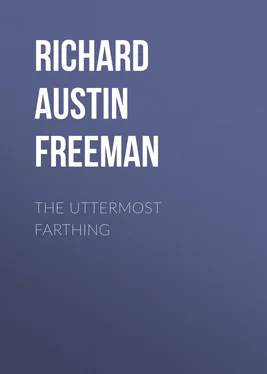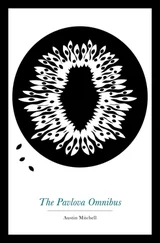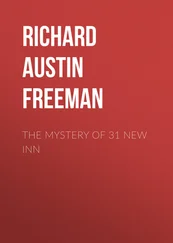Richard Austin Freeman - The Uttermost Farthing
Здесь есть возможность читать онлайн «Richard Austin Freeman - The Uttermost Farthing» — ознакомительный отрывок электронной книги совершенно бесплатно, а после прочтения отрывка купить полную версию. В некоторых случаях можно слушать аудио, скачать через торрент в формате fb2 и присутствует краткое содержание. Жанр: foreign_prose, Классический детектив, foreign_detective, foreign_antique, на английском языке. Описание произведения, (предисловие) а так же отзывы посетителей доступны на портале библиотеки ЛибКат.
- Название:The Uttermost Farthing
- Автор:
- Жанр:
- Год:неизвестен
- ISBN:нет данных
- Рейтинг книги:3 / 5. Голосов: 1
-
Избранное:Добавить в избранное
- Отзывы:
-
Ваша оценка:
- 60
- 1
- 2
- 3
- 4
- 5
The Uttermost Farthing: краткое содержание, описание и аннотация
Предлагаем к чтению аннотацию, описание, краткое содержание или предисловие (зависит от того, что написал сам автор книги «The Uttermost Farthing»). Если вы не нашли необходимую информацию о книге — напишите в комментариях, мы постараемся отыскать её.
The Uttermost Farthing — читать онлайн ознакомительный отрывок
Ниже представлен текст книги, разбитый по страницам. Система сохранения места последней прочитанной страницы, позволяет с удобством читать онлайн бесплатно книгу «The Uttermost Farthing», без необходимости каждый раз заново искать на чём Вы остановились. Поставьте закладку, и сможете в любой момент перейти на страницу, на которой закончили чтение.
Интервал:
Закладка:
"When I had buried my dear wife, I waited with some impatience to see what the police would do. I had no great expectations. The English police system is more adjusted to offences against property than to those against the person. Nothing had been stolen, so nothing could be traced; and the clues were certainly very slight. It soon became evident to me that the authorities had given the case up. They gave me no hope that the murderer would ever be identified; and, in fact, it was pretty obvious that they had written the case off as hopeless and ceased to interest themselves in it.
"Of course I could not accept this view. My wife had been murdered. The murder was without extenuation. It had been committed lightly to cover a paltry theft. Now, for murder, no restitution is possible. But there is an appropriate forfeit to be paid; and if the authorities failed to exact it, then the duty of its exaction devolved upon me. Moreover, a person who thus lightly commits murder as an incident in his calling is unfit to live in a community of human beings. It was clearly my duty as a good citizen to see that this dangerous person was eliminated.
"This was well enough in theory, but its realization in practice presented considerable difficulties. The police had (presumably) searched for this person and failed to find him. How was I, untrained in methods of detection, to succeed where the experts had been baffled? I considered my resources. They consisted of a silver teapot and a salver which had been handled by the murderer and which, together, yielded a complete set of finger-prints, and the wisp of hair that I had taken from the hand of my murdered wife. It is true that the police also had finger-marked plate and the remainder of the hair and had been unable to achieve anything by their means; but the value of finger-impressions for the purposes of identification is not yet appreciated outside scientific circles. 1 1 The narrative seems to have been written in 1890.—L.W.
I fetched the teapot and salver from the drawer in which I had secured them and examined them afresh. The teapot had been held in both hands and bore a full set of prints; and these were supplemented by the salver. For greater security I photographed the whole set of the finger-impressions and made platinotype prints which I filed for future reference. Then I turned my attention to the hair. I had already noticed that it was of a dull gray color, but now, when I came to look at it more closely, I found the color so peculiar that I took it to the window and examined it with a lens.
"The result was a most startling discovery. It was ringed hair. The gray appearance was due, not to the usual mingling of white and dark hairs, but to the fact that each separate hair was marked by alternate rings of black and white. Now, variegated hairs are common enough in the lower animals which have a pattern on the fur. The tabby cat furnishes a familiar example. But in man the condition is infinitely rare; whence it was obvious that, with these hairs and the finger-prints, I had the means of infallible identification. But identification involves possession of the person to be identified. There was the difficulty. How was it to be overcome?
"Criminals are vermin. They have the typical characters of vermin; unproductive activity combined with disproportionate destructiveness. Just as a rat will gnaw his way through a Holbein panel, or shred up the Vatican Codex to make a nest, so the professional criminal will melt down priceless medieval plate to sell in lumps for a few shillings. The analogy is perfect.
"Now, how do we deal with vermin—with the rat, for instance?
"Do we go down his burrow and reason with him? Do we strive to elevate his moral outlook? Not at all. We induce him to come out. And when he has come out, we see to it that he doesn't go back. In short, we set a trap. And if the rat that we catch is not the one that we wanted, we set it again.
"Precisely. That was the method.
"My housemaid had absconded at the time of the murder; she was evidently an accomplice of the murderer. My cook had left on the same day, having conceived a not unnatural horror of the house. Since then I had made shift with a charwoman. But I should want a housemaid and a cook, and if I acted judiciously in the matter of references, I might get the sort of persons who would help my plans. For there are female rats as well as male.
"But there were certain preliminary measures to be taken. My physical condition had to be attended to. As a young man I was a first-class athlete, and even now I was strong and exceedingly active. But I must get into training and brush up my wrestling and boxing. Then I must fit up some burglar alarms, lay in a few little necessaries and provide myself with a suitable appliance for dealing with the 'catch.'
"This latter I proceeded with at once. To the end of a rod of rhinoceros horn about two feet long I affixed a knob of lead weighing two pounds. I covered the knob with a thickish layer of plaited horsehair, and over this fastened a covering of stout leather; and when I had fitted it with a wrist-strap it looked a really serviceable tool. Its purpose is obvious. It was an improved form of that very crude appliance, the sand-bag, which footpads use to produce concussion of the brain without fracturing the skull. I may describe it as a concussor.
"The preliminary measures were proceeding steadily. I had put in a fortnight's attendance at a gymnasium under the supervision of Professor Schneipp, the Bavarian Hercules; I had practiced the most approved 'knock-outs' known to my instructor, the famous pugilist, Melchizedeck Cohen (popularly known as 'Slimy' Cohen); I had given up an hour a day to studying the management of the concussor with the aid of a punching-ball; the alarms were ready for fixing, and I even had the address of an undoubtedly disreputable housemaid, when a most unexpected thing happened. I got a premature bite. A fellow actually walked into the trap without troubling me to set it.
"It befell thus. I had gone to bed rather early and fallen asleep at once, but about one o'clock I awoke with that unmistakable completeness that heralds a sleepless night. I lit my candle-lamp and looked round for the book that I had been reading in the evening, and then I remembered that I had left it in the museum. Now that book had interested me deeply. It contained the only lucid description that I had met with of the Mundurucú Indians and their curious method of preserving the severed heads of their enemies; a method by which the head—after removal of the bones—was shrunk until it was no larger than a man's fist.
"I got up, and, taking my lamp and keys, made my way to the museum wing of the house, which opened out of the dining-room. I found the book, but, instead of returning immediately, lingered in the museum, looking about the great room and at the unfinished collection and gloomily recalling its associations. The museum was a gift from my wife. She had built it and the big laboratory soon after we were married and many a delightful hour we had spent in it together, arranging the new specimens in the cases. I did not allow her to work in the evil-smelling laboratory, but she had a collection of her own, of land and fresh-water shells (which were cleaner to handle than the bones); and I was pulling out some of the drawers in her cabinet, and, as I looked over the shells, thinking of the happy days when we rambled by the riverside or over furzy commons in search of them, when I became aware of faint sounds of movement from the direction of the dining-room.
"I stepped lightly down the corridor that led to the dining-room and listened. The door of communication was shut, but through it I could distinctly hear someone moving about and could occasionally detect the chink of metal. I ran back to the museum—my felt-soled bedroom slippers made no sound—and, taking the 'concussor' from the drawer in which I had concealed it, thrust it through the waist-band of my pajamas. Then I crept back to the door.
Читать дальшеИнтервал:
Закладка:
Похожие книги на «The Uttermost Farthing»
Представляем Вашему вниманию похожие книги на «The Uttermost Farthing» списком для выбора. Мы отобрали схожую по названию и смыслу литературу в надежде предоставить читателям больше вариантов отыскать новые, интересные, ещё непрочитанные произведения.
Обсуждение, отзывы о книге «The Uttermost Farthing» и просто собственные мнения читателей. Оставьте ваши комментарии, напишите, что Вы думаете о произведении, его смысле или главных героях. Укажите что конкретно понравилось, а что нет, и почему Вы так считаете.












